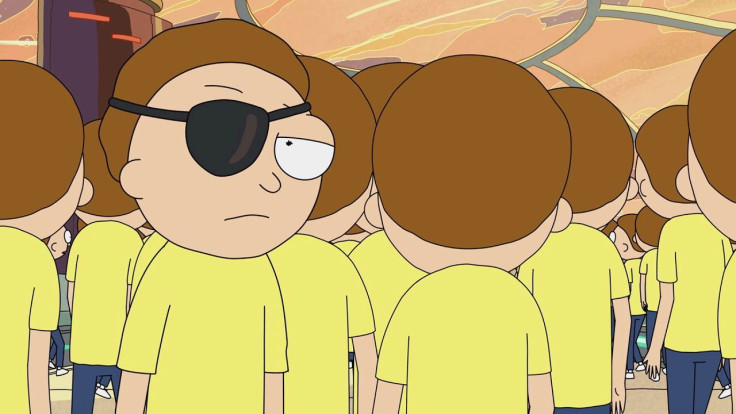Endless fan theorizing filled the void between Rick and Morty Season 2 and 3 with great smelly piles of bullshit. People concocted all sorts of extra-textual ideas. Rick’s flask is full of mega seed extract. Krombopulos Michael would return to free Rick from Galactic Federation prison. Rick was once a Morty. Rick knows he’s in a cartoon. Different episodes are set in different dimensions, with different Ricks and different Mortys. Mainly, fan theories seem to miss the point — future plots are not generated from trivia pedantry and laboriously uncovered easter eggs — but new insight into the writing process from Rick and Morty writer Mike McMahan reveal a surprising way fan theories shape actual episodes.
It probably wouldn’t surprise anyone to learn that Rick and Morty writers pay close attention to fan theories, often sharing them with each other on Twitter. They’re often dismissive or scornful of over-elaborate theories, such as producer and writer Ryan Ridley, whose response to one of the most widespread Season 3 fan theories, “The Secret of the Ticket,” can be summed up in one onomatopoetic “Pfffft.”
But while dismissal is usually enough, McMahan writes that even an accurate fan theory will be overturned in the writers’ room.
“The fastest way to make sure your Rick & Morty fan theory is wrong is to tell me about it, because then I’ll make sure it never happens,” McMahan writes.
I can't guarantee that I'll have the sway to 100% keep it from happening, but I'll try. I'll try until I'm dead.
It's no fun if somebody guesses a secret plot line, I'd rather be surprising than prove someone guessed right. Also: I'm a jerk.
Unlike Game of Thrones, where there’s nominally an existing plot to unfurl, each season of Rick and Morty has limitless possibilities. Even if a fan theory hits on a tentative plan, the writers can take the show in another direction.
Since Rick and Morty Season 3 has largely eschewed all the dumb fan theory plot twists of the type co-creator Justin Roiland has called “George Lucas-y” (just-so stories explaining the background behind a character trait in a trite way), it seems unlikely there have been many times when plans for Rick and Morty were scrapped to dodge an especially insightful fan theory. But it has happened. According to McMahan, there have been occasions when good-guess fan theories have resulted in story changes.
Yep. I'm saying that's exactly what will and has already happened.
— Mike McMahan (@MikeMcMahanTM) August 22, 2017
Still, it’s unlikely Rick and Morty writers are throwing out multi-episode story arcs or major character reveals thanks to some YouTuber named glipGlopKromBop, since Rick and Morty episodes aren’t generally structured around the same details that tend to fascinate fan theoreticians. Season 3 episodes have spent far more time on the more ephemeral aspects of its characters’ psychologies than infodump reveals of dimensional mechanics or too-clever twists from Rick’s past. The season premiere gently mocked that kind of storytelling, offering a tragic backstory for Rick, only to have him disclaim it as a tactical lie designed to get him closer to McNugget sauce.
In an interview with AV Club, co-creator Dan Harmon gave the main reason why Rick and Morty doesn’t chase the kind of reveals beloved by fan theorists and Westworld writers:
“You cannot write payoff-based TV anymore because the audience is essentially a render farm. They have an unlimited calculation capacity. There’s no writers’ room that can think more than 20 million people who can think about it for an hour a day.”



















